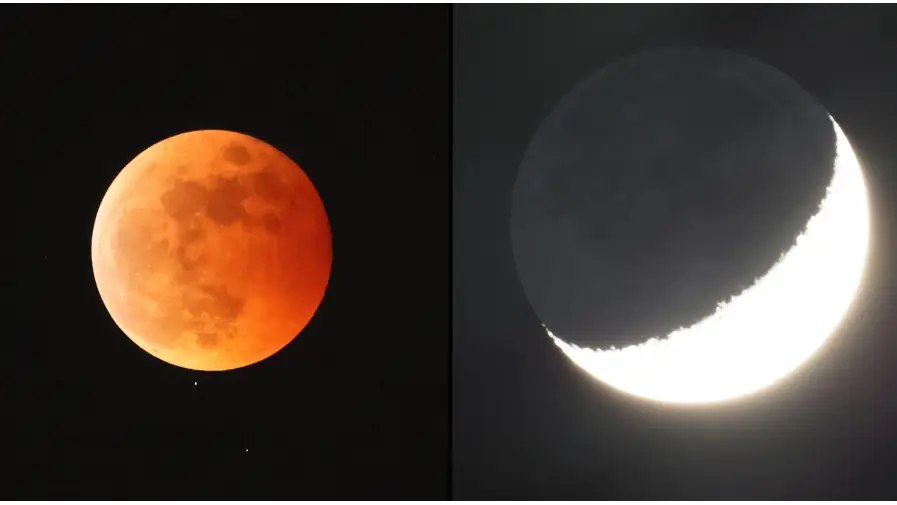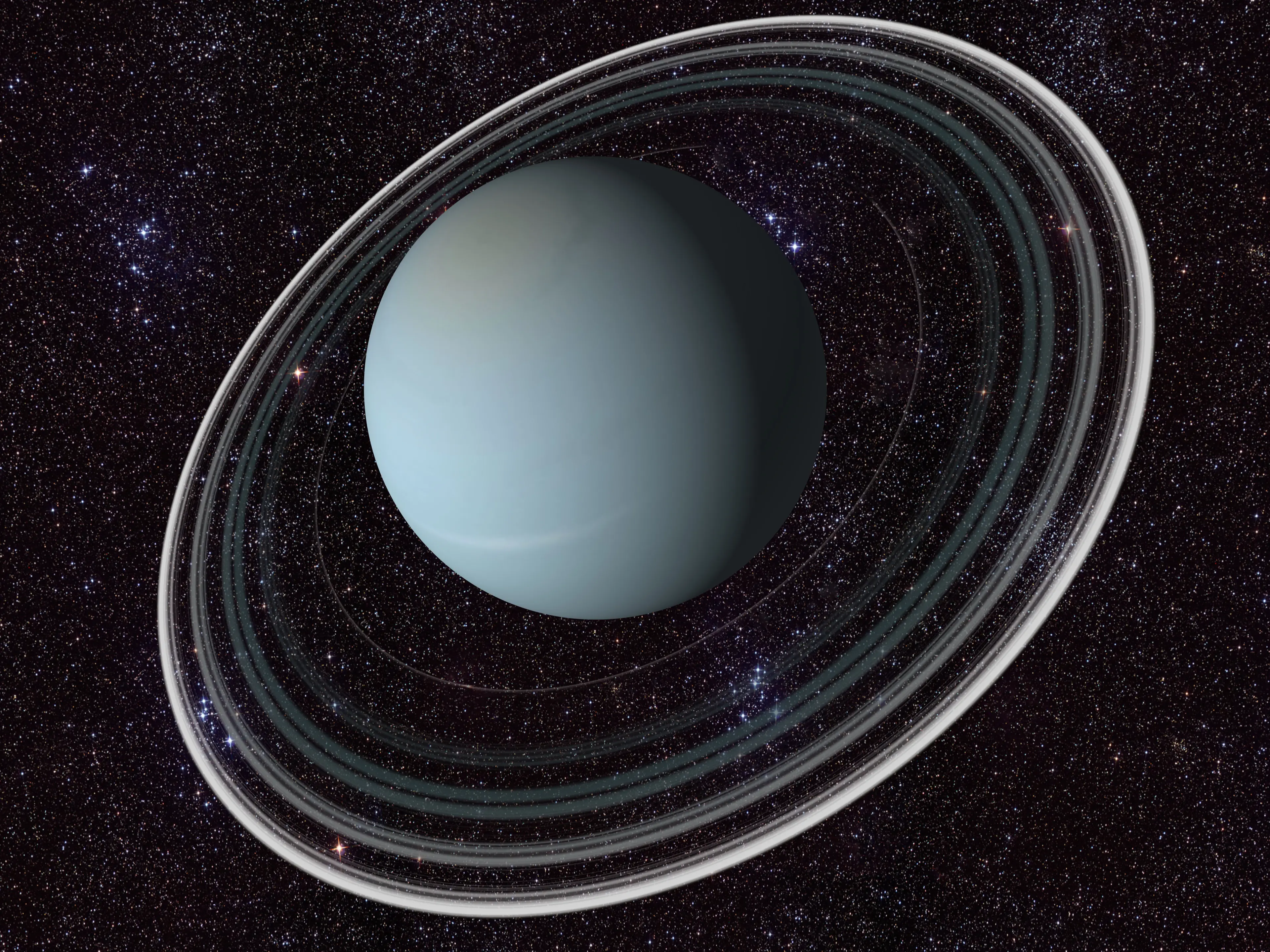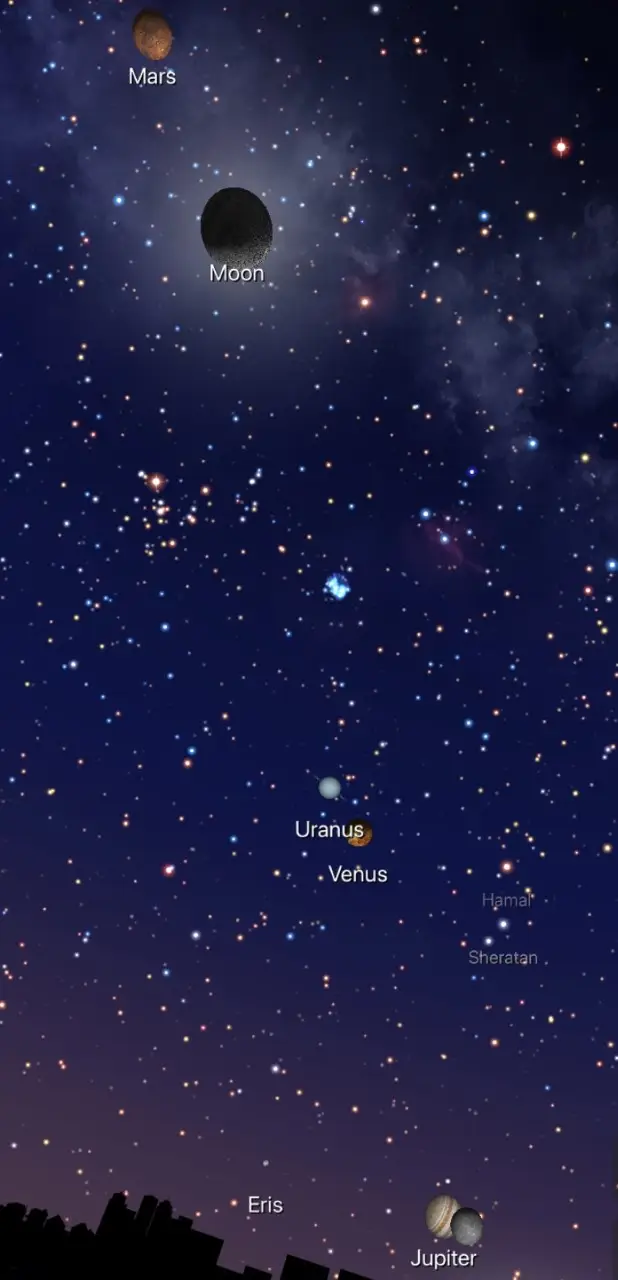
Five planets will be visible to the naked eye alongside the moon in the sky tonight as they form an arc in what's known as a 'planetary parade'.
Mercury, Venus, Mars, Jupiter and Uranus will be visible in the night's sky and it's the sort of thing you won't want to miss.
If you've got a telescope that's been gathering dust ahead of some big event then now's the time to open it up and point it towards the western horizon, hopefully with a view that isn't going to get obscured by anything.
Of course, Uranus is the thing everyone is really excited to get a good look at as it's very far away from us and we don't often get a look at it, so if you want to see Uranus tonight stand over a mirror follow these instructions.
Advert
While the naked eye will do a decent job of spotting some of the nearer planets in tonight's sky, you'll want to get a much closer look at Uranus with your handy telescope or binoculars to spot as much as you can in the 'planetary parade'.

This event will be visible after sunset, so you'll be waiting slightly longer than expected thanks to daylight saving time, and you will need to be looking west.
As ever with this sort of stargazing you'll ideally be somewhere with clear skies and an unobscured view, and if you can manage that tonight you can peer into the vast, dark void of space hoping to see that little circle that is Uranus.
Jake Foster of the Royal Observatory Greenwich told the BBC that you should be able to see Jupiter, Venus, Mars and the Moon with the naked eye tonight, but getting a good look at Uranus and Mercury will take a bit more work.
Foster said you'd want a 'medium sized telescope' to sneak a peek at Uranus, while Mercury posed 'an added challenge for the very determined'.
He explained that the planets aren't actually aligned in our solar system at the moment but from our position on Earth, it does look like they line up.

From our perspective it will look as though Mercury and Jupiter are closest to the horizon, while turning your gaze higher will see you peering out at Venus and Uranus.
While Uranus will be hard to spot it'll appear to be very close to the bright and visible light of Venus, three degrees to the upper left of the bright planet.
Even higher up you'll see the Moon, which currently resembles a fat crescent, and then Mars.
According to Space.com your window of opportunity to see it all will be brief, as you'll want to be on the lookout for Mercury and Jupiter around 20 to 25 minutes after sunset, and you'll only have about half an hour to see them before they disappear from view.
Venus and Jupiter will be the brightest planets you can see, and if you want to make sure you're looking at a planet then check for the lack of a twinkle, while stars may appear to twinkle in the night's sky this is something planets don't do.